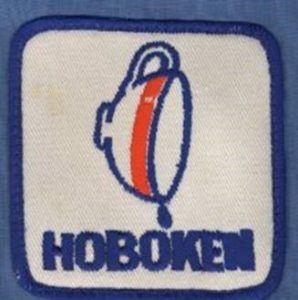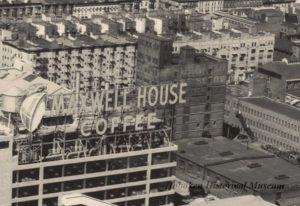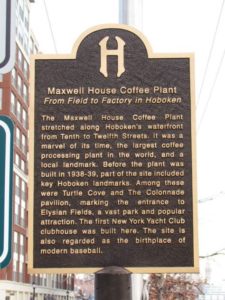
Although the factory itself closed on March 19, 1992, the building has since been turned into a community of high-end condos – now called Maxwell Place on the Hudson – that line the Hudson River between 10th and 12th Streets in Hoboken.
But prior to its closing, the Maxwell House plant operated for 53 years, first opening in 1939, and was the largest employer in the city of Hoboken. Eventually, however, General Foods Corporation – which owned Maxwell House and the building – relocated to Jacksonville, Florida, and suddenly the coffee aroma that once wafted through the streets of Hoboken 24 hours a day was no more.


You see, even before the property was home to Maxwell House, it served as the site of the first New York Yacht Club clubhouse and, perhaps even more impressive, as the entrance to Elysian Fields, a vast park and popular attraction that is widely regarded as the birthplace of modern baseball.
This idea of giving new life to a historically significant site is not new to New Jersey. Our state is home to countless historical properties that have been either restored to maintain their history – like the Edison Building I highlighted last month, which now serves as a museum and educational center – or have been repurposed into modernized structures – like the Leo Building in Bloomfield, The Vail Mansion in Morristown and the Maidenform Factory in Bayonne – that all serve the modern public daily.
The Maxwell House property, though, may be the only one that has served at least four uniquely significant purposes in its lifetime. And that’s certainly a pretty cool fact worth clinking our coffee mugs over. The current stucture of Maxwell and the NYC view of the building can be seen here.
Best Wishes,
Karen